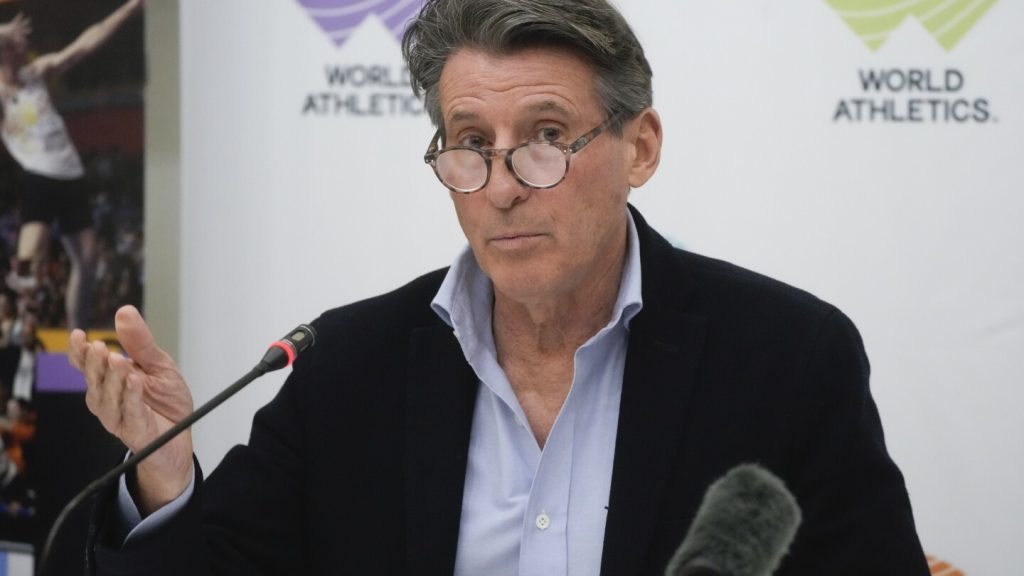Sebastian Coe, a 68-year-old gold-medal runner and current head of the organization that governs global track and field, is running for the position of International Olympic Committee (IOC) president. Coe has a reputation for going against the grain and making decisions that are sometimes controversial. He believes that his record of success, including leading the 2012 London Olympic Committee and promoting gender equity in athletics, makes him a strong candidate for the job. Despite facing criticism from some in the sporting world for his unconventional approach, Coe remains confident in his ability to bring about positive change within the IOC.
In his interview with The Associated Press, Coe emphasized his guiding principle that prioritizing the needs of athletes is essential for the success of sports organizations. He acknowledged that his willingness to take risks and challenge the status quo has sometimes been met with resistance, but he remains committed to his beliefs. Coe’s proactive approach to leadership has defined his career in sports, and he believes that his experience and track record make him well-suited to lead the IOC. He is positioning himself as a candidate who can bring about a necessary “reset in the movement around sports” by implementing both popular and difficult changes.
Despite his credentials and vision for the future of international sports, there is a sense that the odds may be stacked against Coe in the race for IOC president. The committee recently released rules that limit candidates to serving until the age of 74, a directive that could affect Coe’s eligibility. Additionally, the level of support from current IOC president Thomas Bach, who has a significant influence within the organization, remains uncertain. Despite potential challenges, Coe remains optimistic about his candidacy and maintains a friendly relationship with Bach, emphasizing their differences in opinion as a normal part of the democratic process.
Coe has faced both praise and criticism for his policies as president of World Athletics, including his tough stance against doping and his efforts to ensure fairness in competition. His decision to address the issue of eligibility for transgender athletes and those with differences of sexual development has been met with mixed reactions. While some view Coe as being on the wrong side of history, others believe he can be persuaded to reconsider his position. Coe’s recent decision to award prize money to Olympic gold medalists in track and field was met with backlash from some sports leaders, highlighting potential challenges he may face in garnering support for his candidacy.
Born and raised in northern England, Coe’s upbringing in a working-class town shaped his perspective on the challenges faced by athletes, even at the elite level. He draws parallels between his current campaign for IOC president and his early political career, emphasizing his commitment to standing by his beliefs. Coe’s success in leading London’s bid for the 2012 Olympics is seen as a highlight of his career in sports leadership. As he embarks on his final campaign for IOC president, Coe envisions an opportunity to further enhance the Olympic Games, engage younger audiences, and collaborate with other IOC members to make impactful decisions for the future of international sports.


